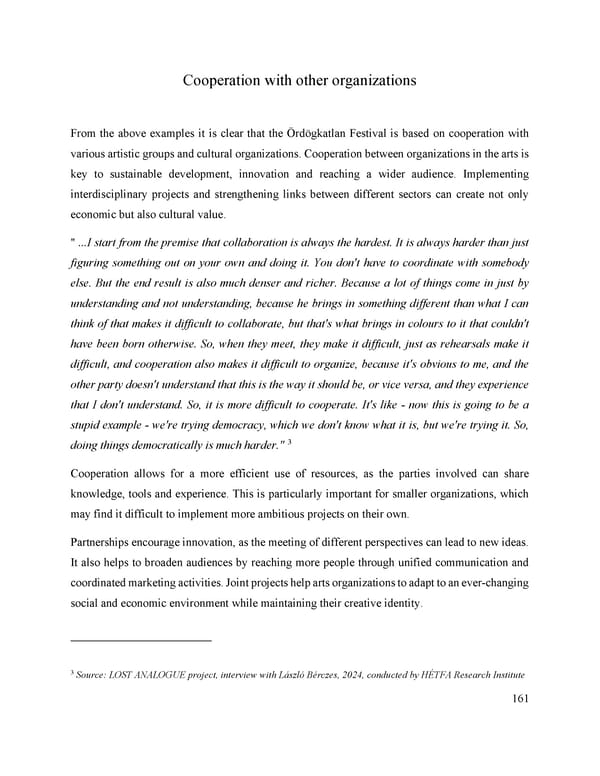Cooperation with other organizations From the above examples it is clear that the Ördögkatlan Festival is based on cooperation with various artistic groups and cultural organizations. Cooperation between organizations in the arts is key to sustainable development, innovation and reaching a wider audience. Implementing interdisciplinary projects and strengthening links between different sectors can create not only economic but also cultural value. " ...I start from the premise that collaboration is always the hardest. It is always harder than just figuring something out on your own and doing it. You don't have to coordinate with somebody else. But the end result is also much denser and richer. Because a lot of things come in just by understanding and not understanding, because he brings in something different than what I can think of that makes it difficult to collaborate, but that's what brings in colours to it that couldn't have been born otherwise. So, when they meet, they make it difficult, just as rehearsals make it difficult, and cooperation also makes it difficult to organize, because it's obvious to me, and the other party doesn't understand that this is the way it should be, or vice versa, and they experience that I don't understand. So, it is more difficult to cooperate. It's like - now this is going to be a stupid example - we're trying democracy, which we don't know what it is, but we're trying it. So, 3 doing things democratically is much harder." Cooperation allows for a more efficient use of resources, as the parties involved can share knowledge, tools and experience. This is particularly important for smaller organizations, which may find it difficult to implement more ambitious projects on their own. Partnerships encourage innovation, as the meeting of different perspectives can lead to new ideas. It also helps to broaden audiences by reaching more people through unified communication and coordinated marketing activities. Joint projects help arts organizations to adapt to an ever-changing social and economic environment while maintaining their creative identity. 3 Source: LOST ANALOGUE project, interview with László Bérczes, 2024, conducted by HÉTFA Research Institute 161
 Lost Analogue: Exploring Film, Music, and Interdisciplinary Methods in Education Page 161 Page 163
Lost Analogue: Exploring Film, Music, and Interdisciplinary Methods in Education Page 161 Page 163